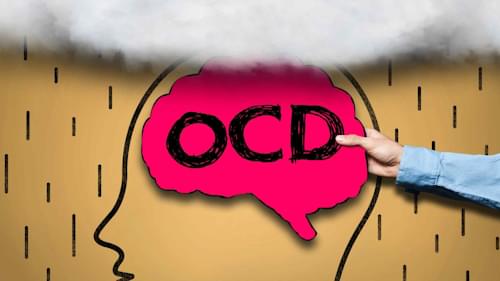Breaking the Cycle of Procrastination and Perfectionism

Are you consistently putting off tasks and fixating on perfection? Fear of failure frequently drives procrastination behaviors, resulting in excessive rumination and difficulty making decisions.
But by examining our beliefs and mindset, we can break away from these patterns and embrace a more optimistic approach to achieving success.
Perfectionism can lead to procrastination, the fear of failure, and inadequacy, which cause us to put off tasks until the last minute. But it doesn't have to be this way. It is possible to break the cycle of procrastination and perfectionism and redefine success for ourselves.
Redefining success: perfectionism and procrastination
Have you ever wondered why you always seem to leave things until the last minute, despite your best intentions? Or why do you constantly need perfection in everything you do?
Well, you may be experiencing the vicious cycle of procrastination and perfectionism.
Procrastination is the opposite of procrastination. Instead of putting things off, procrastination is the urge to complete tasks immediately, regardless of their priority. This behavior often stems from a fear of failure and the need to prove oneself.
On the other hand, perfectionism is the relentless pursuit of flawlessness and high standards.
Trying to achieve excellence is noble; however, perfectionism can prevent progress and cause harm. Understanding the connection between perfectionism and procrastination is crucial to breaking free from this cycle. By recognizing how they reinforce each other, we can challenge the thoughts and beliefs that drive these behaviors.
The Connection Between Perfectionism and Procrastination
Perfectionism and procrastination often go hand in hand, creating a never-ending cycle of frustration and unmet expectations.
So, what exactly is the connection between these two common behaviors?
Delaying or putting off tasks until the last minute is known as procrastination. This often leads to rushing to complete them before the deadline. Lack of motivation, a fear of failure, or difficulty prioritizing tasks can all be contributing factors to procrastination.
On the other hand, perfectionism is the constant pursuit of flawlessness or excellence. Although it can be a positive trait, it can also result in unrealistic expectations, self-criticism, and anxiety. Both procrastination and perfectionism can adversely affect productivity, mental health, and overall well-being.
On the surface, they may seem like opposites, but in reality, they are two sides of the same coin. Fear of failure and the desire to prove oneself are the driving forces behind procrastination—the urge to complete tasks immediately, regardless of their priority. Perfectionism, on the other hand, fuels the need for flawless outcomes and high standards.
When these two behaviors intersect, it becomes a toxic combination. The fear of failure that drives procrastination often leads to a need for perfection in order to avoid criticism or judgment. This perpetuates a cycle of overthinking, indecisiveness, and, ultimately, more procrastination.
Understanding the connection between perfectionism and procrastination is crucial to breaking free from this cycle. By recognizing how these behaviors reinforce each other, we can begin to challenge the thoughts and beliefs that drive them. Stay tuned as we explore techniques to overcome the fear of failure and embrace a new perspective on success.
Perfectionism vs. OCD

Perfectionism and obsessive-compulsive disorder (OCD) are often misunderstood and can sometimes be mistaken for one another. While they may share some similarities, it's important to understand the key differences between the two.
People who are perfectionists strive for flawlessness and set high standards for themselves. This quality is a part of their personality and is persistent.
People with perfectionistic tendencies may have an intense fear of failure and often put immense pressure on themselves to achieve unrealistic goals.
On the other hand, OCD is a mental health condition characterized by continuous and intrusive thoughts and repetitive behaviors or rituals.
A need to reduce anxiety and stop perceived harm is what drives these obsessions and compulsions. OCD is not solely focused on perfectionism but instead on managing anxiety and reducing distress through specific rituals or behaviors.
How procrastination reinforces perfectionism
When it comes to the cycle of procrastination and perfectionism, these two behaviors reinforce each other in a toxic way.
The need to prove oneself and the fear of failure are common motivations for procrastination—the urge to complete tasks right away, regardless of their priority.
On the other hand, perfectionism fuels the desire for flawless outcomes and high standards. Procrastination reinforces perfectionism by creating a sense of urgency to complete tasks perfectly. The fear of failure drives individuals to overthink and second-guess themselves, leading to even more perfectionistic tendencies. This cycle can result in increased anxiety, indecisiveness, and, ultimately, more procrastination. Recognizing how procrastination reinforces perfectionism is crucial to breaking free from this cycle. By understanding the underlying fear of failure and challenging our thoughts and beliefs, we can start adopting healthier perspectives and behaviors. In the following sections, we will explore techniques for overcoming the fear of failure and embracing imperfection as part of the success journey.
The Downside of Perfectionism
Perfectionism may seem like a desirable trait, but it actually comes with a hefty downside. The constant pursuit of flawlessness can lead to a variety of negative consequences. Perfectionists often struggle with high stress and anxiety levels as they constantly feel pressure to meet impossibly high standards. This can result in burnout and a decreased sense of overall well-being.
Additionally, perfectionism can lead to a lack of productivity. Because perfectionists are so focused on achieving the perfect outcome, they often spend excessive time on tasks, which can lead to missed deadlines or unfinished projects. This can be incredibly frustrating and hinder personal and professional growth.
Furthermore, perfectionism can strain relationships. Perfectionists often hold themselves and others to unrealistic expectations, which can create tension and conflict in their interactions. It can be difficult for others to live up to the perfectionist's standards, and this can lead to feelings of inadequacy and resentment.
In order to break free from the downsides of perfectionism, it is important to challenge the need for perfection and embrace a more balanced approach. Stay tuned as we explore techniques for overcoming the fear of failure and redefining success for ourselves.
Overcoming Fear of Failure
Fear of failure is a common struggle for perfectionists, and it can greatly contribute to the cycle of procrastination and perfectionism. The constant need for flawlessness often leads to a paralyzing fear of making mistakes and falling short of expectations. However, overcoming this fear is essential to breaking free from the grip of procrastination and embracing a healthier approach to success.
One effective way to overcome the fear of failure is to reframe your mindset. Perceiving failure as an opportunity to develop and gain knowledge is far more valuable than viewing it as a negative result. Embrace the idea that making mistakes is a natural part of learning and does not define your worth or abilities.
Additionally, practice self-compassion and kindness toward yourself.
Treat yourself with the same empathy and understanding you would give to a friend. Remember that making mistakes is a completely normal aspect of life, and it's perfectly acceptable not to achieve perfection. Finally, take small steps towards facing your fears and taking action. Start with tasks slightly outside your comfort zone and gradually build up your confidence. Celebrate the progress you make, no matter how small, and recognize that every step forward is a success in itself.
By overcoming the fear of failure, you can break free from the cycle of procrastination and perfectionism and embrace a more balanced and fulfilling approach to success.
Mindfulness: A Solution for Procrastination and Perfectionism
In the constant rush of our lives, many of us struggle with procrastination and perfectionism, as our minds are often filled with the fear of failure and the desire to prove ourselves. However, it's important to recognize and work towards overcoming these patterns.
But what if there was a solution to break free from this cycle? Enter mindfulness.
Researchers at Carleton University discovered that mindfulness-based interventions can decrease procrastination by increasing participants' awareness and acceptance of thoughts and emotions related to work tasks.
Mindfulness is the practice of being fully present in the moment and non-judgmentally aware of our thoughts, feelings, and sensations. It allows us to step back from our perfectionistic tendencies and observe them with a sense of curiosity and compassion.
Studies have shown that mindfulness practices such as meditation can help reduce anxiety and increase focus, potentially aiding in breaking the cycle of procrastination and perfectionism. In addition, mindfulness practices have been found to improve emotional regulation and self-awareness, allowing individuals to better recognize and manage their own unrealistic expectations and self-critical thoughts. This can eventually lead to a more balanced and compassionate approach towards mistakes and setbacks, fostering a healthier work environment.
Practicing mindfulness in our daily routines can make us more aware of our tendencies toward procrastination and perfectionism. We become more aware of the thoughts and beliefs that drive these behaviors and can consciously choose to let go of them.
Through mindfulness, we learn to embrace imperfection and let go of the need for flawless outcomes. We are aware that effort and growth along the way are also important indicators of success, in addition to the final product.
So, the next time you find yourself caught up in the cycle of pre-crastination and perfectionism, take a moment to pause, breathe, and bring yourself back to the present. Practice mindfulness, and watch as your mindset shifts and a sense of peace and acceptance settles in.
Accepting Imperfection as Part of Success
Accepting imperfection as part of success is a crucial mindset shift for breaking free from the cycle of procrastination and perfectionism. It's important to remember that perfection is an unattainable goal, and constantly striving for it can lead to frustration, stress, and even burnout. Embracing imperfection means acknowledging that making mistakes is a natural part of growth and learning. It entails realizing that effort, progress, and lessons learned along the way are also important indicators of success in addition to the final product.
According to a study published in Personality and Individual Differences, self-compassion can protect against negative aspects of perfectionism, such as burnout and depression. The study found that people who were more self-compassionate were less likely to experience burnout and depression, even when they had high levels of perfectionism.
This suggests that cultivating self-compassion may be an effective strategy for mitigating the harmful effects of perfectionism on mental well-being.
By accepting imperfection, we can release the unrealistic expectations we place on ourselves and allow ourselves to be more compassionate and forgiving.
If you ever feel like you need to be perfect, try to take a moment to reflect and remember that it's alright to have imperfections.
Embrace the journey, embrace the mistakes, and embrace the growth that comes from it.
Setting realistic goals and celebrating progress
Setting realistic goals and celebrating progress are essential to breaking free from the cycle of procrastination and perfectionism. When we set unrealistic expectations for ourselves, we set ourselves up for disappointment and frustration. We can create a sense of motivation and progress by setting achievable goals.
One way to achieve your goals is to break them down into smaller, more attainable tasks. This approach can help you stay motivated and focused and make progress toward your ultimate objective. This allows us to focus on one step at a time and prevents overwhelm.
It's important to be honest with ourselves about our limitations and prioritize tasks based on their importance and urgency.
Setting achievable goals can increase our chances of success and decrease the likelihood of procrastination.
Celebrating progress is equally important. It's easy to get caught up in the pursuit of perfection and overlook the small wins along the way. We can build confidence and motivation to keep moving forward by acknowledging and celebrating our progress. This can be as simple as rewarding yourself after completing a task or reflecting on how far you've come.
Remember, success is not solely measured by the end result but also by the effort and progress made. Setting realistic goals and celebrating progress allows us to embrace imperfection and redefine success for ourselves.
Thoughts on Redefining Success

In our journey to break free from the cycle of procrastination and perfectionism, redefining what success means to us is important. Success is not solely defined by the end result or the achievement of flawless outcomes. It's about embracing the process, acknowledging our efforts, and celebrating the progress we make along the way.
When we set achievable goals, show ourselves kindness, and pay attention to our thoughts and beliefs, we can let go of the desire for perfection and recognize that making errors is a normal aspect of developing and gaining knowledge.
Achieving success does not involve avoiding failure. Instead, it requires learning from it and using it as a means of personal and professional growth.
So, let's redefine success for ourselves, recognizing that what truly matters is the journey, the lessons learned, and the continuous progress we make toward our goals. It's time to let go of the fear of failure and embrace a more balanced and fulfilling approach to success.

